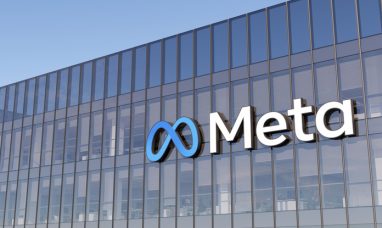The unrelenting energy demand from Big Tech in the AI era has sent Constellation Energy (NASDAQ:CEG) stock soaring. Shares of Constellation, the largest nuclear plant operator in the US, have risen more than 85% year to date, hitting an all-time high in May. The Baltimore-based company’s stock has become a top performer in the S&P 500 Utilities Select Sector ETF.
Much of the enthusiasm stems from Wall Street’s expectation that Constellation will secure a “collocation” deal with major tech firms, allowing them to build data centers next to Constellation’s nuclear plants for carbon-free power. “We are deeply engaged in discussions with several companies interested in this,” said Constellation CEO Joe Dominguez at a recent media roundtable.
Amazon (NASDAQ:AMZN), Alphabet (NASDAQ:GOOG), Microsoft (NASDAQ:MSFT), and Meta (NASDAQ:META) are projected to spend a combined $200 billion this year on cloud and AI investments, including data center construction and maintenance. Power demand from data centers in the US is expected to more than double by 2030 due to AI, according to McKinsey & Co.
Other independent power providers, such as Vistra Corp (NYSE:VST) and NRG Energy (NYSE:NRG), have also benefited from this growing demand, with their stocks up about 130% and 55% year to date, respectively. However, Constellation stands out due to its extensive fleet of 21 nuclear reactors, which can better help tech companies achieve their carbon emissions goals.
Constellation’s stock has nine Buy ratings, five Holds, and no Sells from analysts. “Nuclear plant operators are uniquely positioned to support data centers running continuously with carbon-free power,” said James Thalacker, an analyst at BMO.
Earlier this year, Amazon purchased a $650 million data center campus in Berwick, PA, next to a nuclear plant operated by Talen Energy. This was Amazon’s first agreement of its kind, with the data center powered by the adjacent nuclear facility. Analysts believe Constellation’s Illinois and Pennsylvania plants are ideal for similar Big Tech partnerships.
Constellation also benefits from its unregulated status, allowing it to set energy rates independently. “Constellation is more of an energy play,” said Neil Kalton, senior equity analyst at Wells Fargo. “Their revenues are influenced by market power prices.”
The company also gains from the Biden Administration’s Inflation Reduction Act, which incentivizes the green energy transition. Kalton noted that Constellation produces power at about $25 per megawatt hour, while the Act sets a floor price of approximately $45 per megawatt hour, with no cap on potential profits.
“There’s significant interest from data center developers in long-term contracts at premium prices,” Kalton added. However, analysts warn that rapid price hikes could attract political scrutiny. “A gradual rise in power prices is best for customers, generators, and shareholders,” Thalacker wrote in a recent note.
Since its 2022 spin-off from Exelon (NASDAQ:EXC), Constellation has focused on renewables and hydroelectric power, buying back shares and increasing its dividend. In 2023, Constellation partnered with Microsoft to reduce emissions at one of its data centers through carbon-free energy matching. The company has also signed renewable energy agreements with PepsiCo, McCormick, and Best Buy for its solar project in Texas.
During its latest quarterly call, Constellation forecasted annual earnings per share growth of 10% through the decade. If power prices rise or expected Big Tech deals materialize, “that 10% could be significantly higher,” Kalton said.
Featured Image: Freepik









